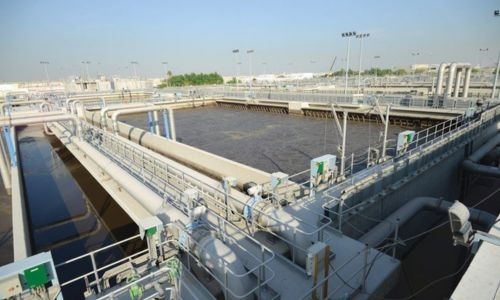The Ministry of Works in Bahrain recently announced a tender for the operation and maintenance of three vital sewage treatment plants in the country, namely South Alba, Hamala, and Danaat Al Lawzi. The main goal of this initiative is to ensure the efficiency of these facilities, which is crucial for safeguarding public health and protecting the environment. The selected contractor will be responsible for providing manpower, spare parts, chemicals, equipment, and all necessary consumables for the operation and maintenance of these plants over a two-year period. It is imperative that the contractor strictly adheres to all protocols and standards set by the Ministry to ensure the proper management of the facilities.
The project’s primary aim is to guarantee the uninterrupted and efficient operation of these STP’s in line with the specified requirements. This is essential for maintaining public health and environmental sustainability in Bahrain. With a network of 16 sewage treatment plants operating throughout the kingdom, Bahrain produces an average of over 240,000 cubic meters of treated water every day. The preventive maintenance program for the pumping stations, transportation, and distribution networks of this treated water is overseen by the Ministry’s engineers to ensure the smooth functioning of the facilities.
Specifically, the South Alba station generates around 1,136 cubic meters of treated water per day, while the Hamala station has an average daily output of approximately 1,107 cubic meters. These figures highlight the critical role that these STP’s play in managing the country’s sewage and wastewater treatment. By awarding this tender for the operation and maintenance of these plants, the Ministry of Works aims to uphold the highest standards of service and maintain the facilities at optimal performance levels.
To successfully operate and maintain these STP’s, the chosen contractor must have the necessary expertise and resources to carry out the specified tasks effectively. This includes supplying the required manpower, spare parts, chemicals, and equipment, as well as adhering to all protocols and standards set by the Ministry. The contractor will be responsible for ensuring the proper functioning of the plants and meeting the specified requirements to uphold public health and environmental protection in Bahrain.
Overall, the announcement of the tender for the operation and maintenance of three key sewage treatment plants in Bahrain reflects the government’s commitment to ensuring the efficient management of wastewater treatment facilities in the country. By securing the services of a qualified contractor to oversee the operation and maintenance of these plants, the Ministry of Works aims to guarantee the continuous and effective treatment of sewage and wastewater to safeguard public health and protect the environment. The successful implementation of this project is crucial for maintaining the sustainability of Bahrain’s sewage treatment infrastructure and ensuring the well-being of its residents.








